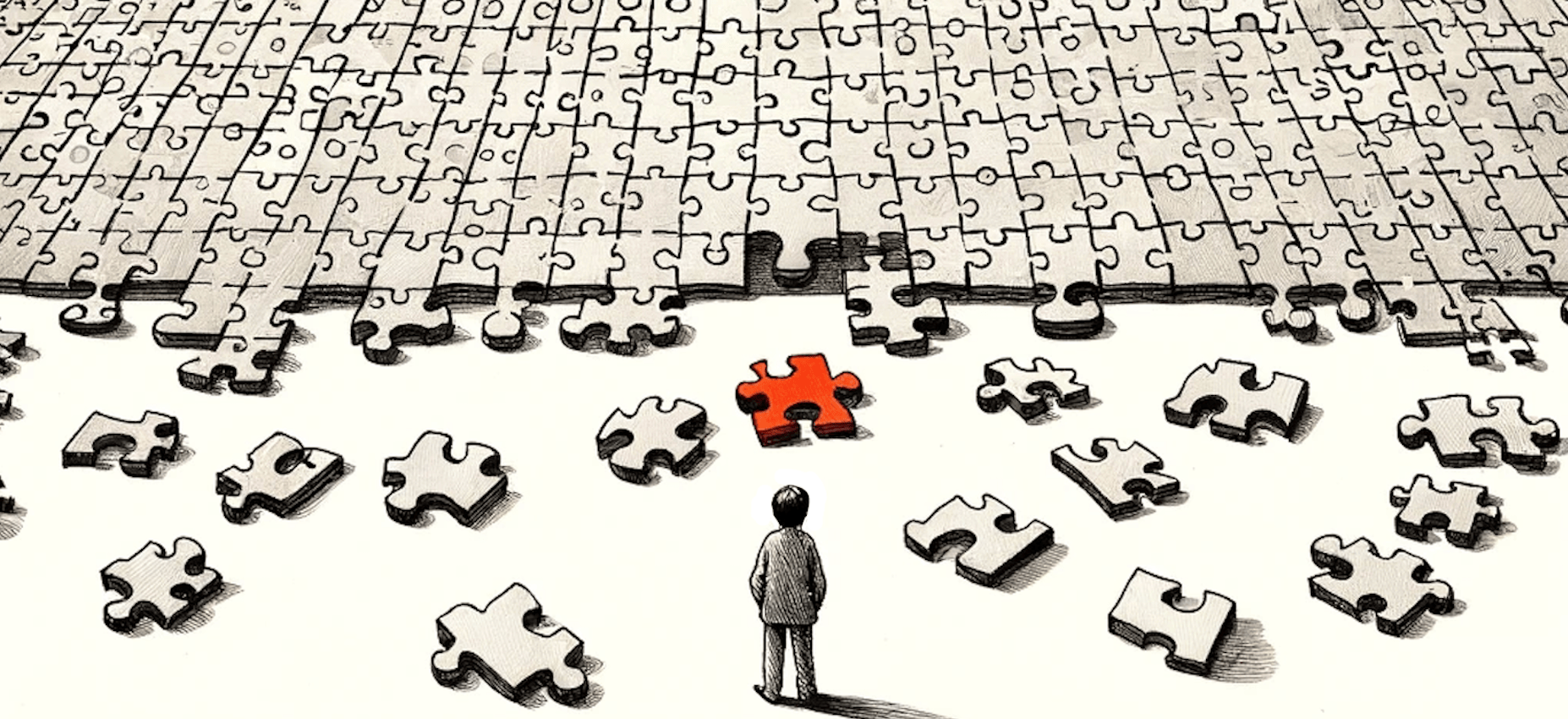Inside a person's mind there is a great big puzzle. It's the puzzle of belief, and each little piece is an experience, a thought, or an inference.
From the moment a person is born they start collecting pieces, and by the time they can walk they've got the start of the puzzle that they're going to have for the rest of their lives. Each time they add a piece they make sure that it fits with the existing ones. If they do, they place it in, reinforcing the existing pieces, and the puzzle continues to grow. If not, they cast it away. By the time a person is old, they'll have a big, beautiful and sturdy puzzle, with all the pieces seemingly fitting together. Because of this, people have great confidence in their puzzles, and a strong attachment to them too.
The problem is that each person's puzzle is unique, but each person attaches to their own particular puzzle as if it were the biggest, sturdiest, and most beautiful. This is partly because people cannot see each other's puzzles. Instead they can only make inferences about them, and do so one piece at a time, never seeing the whole thing at once. So people walk around in a delusional state of attachment to their own puzzle, and seek out the company of people with similar puzzles so that they don't notice the differences as much.
When lots of people have pieces in common it reinforces the beauty and coherence of each of their puzzles.
For this reason, people with very similar puzzles will start building them together. When this happens, it's called religion. When a religion disagrees on if a piece fits, it's called a schism.
Why does this process of adding tiny little pieces create religions and schisms? Because sometimes you come across a piece that simply doesn't fit with the rest of the puzzle. And then you have to figure out what to do with it. Sometimes that means taking some pieces out. Sometimes you have to take a lot of pieces out.
For many, the attachment to (and identification with) their own puzzle is so strong that losing it can be as scary as death itself. So to rescue it they just ignore nagging piece. Then they cram the existing pieces even more tightly together.
When I think of people, I think of their mental puzzles and their relationships to them. I don't like being arund people with big, tense puzzles. You can tell who they are. They defend their puzzles, and try to change your puzzle to match theirs. Because the simple fact that your puzzle even exists is a threat to theirs.
I try to surround myself with people who have smaller, sparser puzzles — or multiple ones going at the same time. When these people let go, they remind me that it's safe for me to let go, too. They remind me that I am not my pieces, and that I am not my puzzle.
